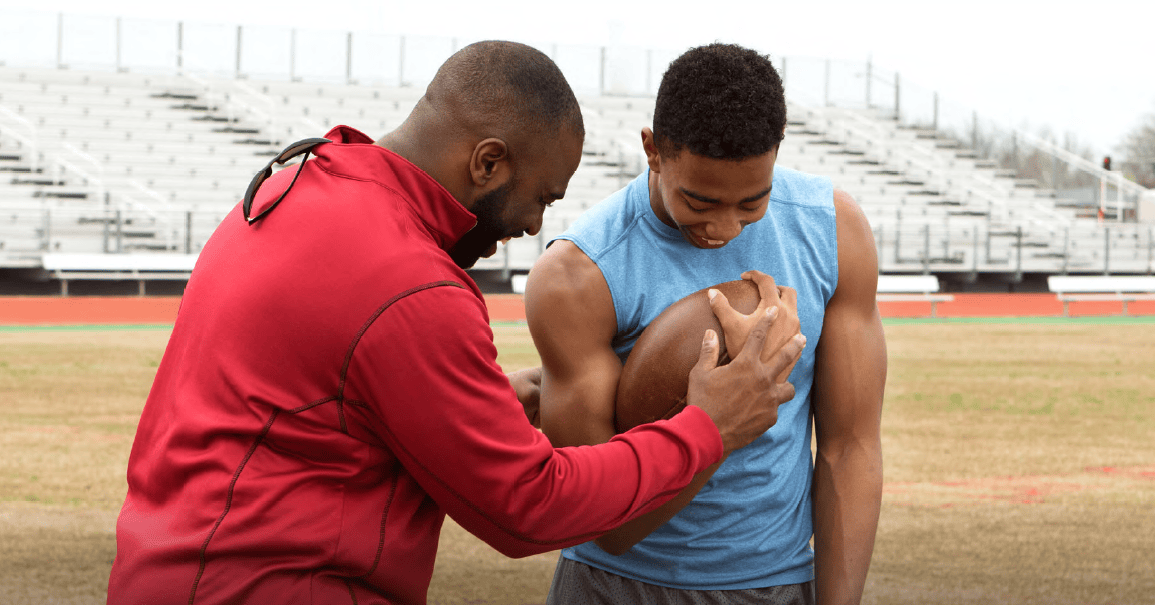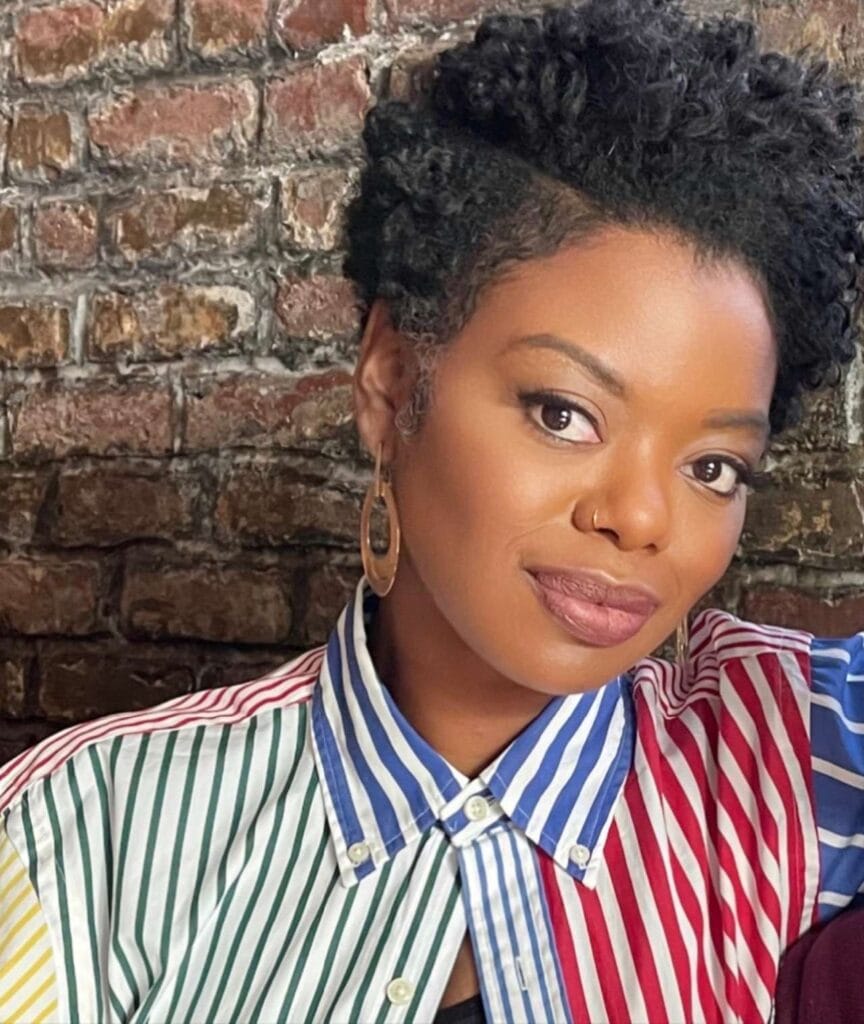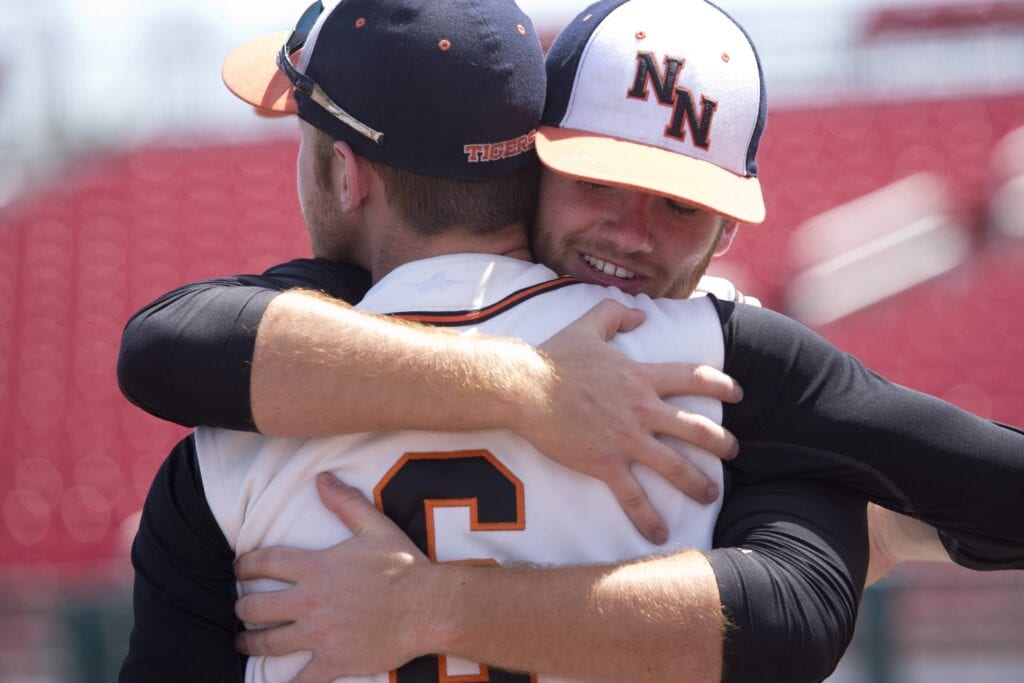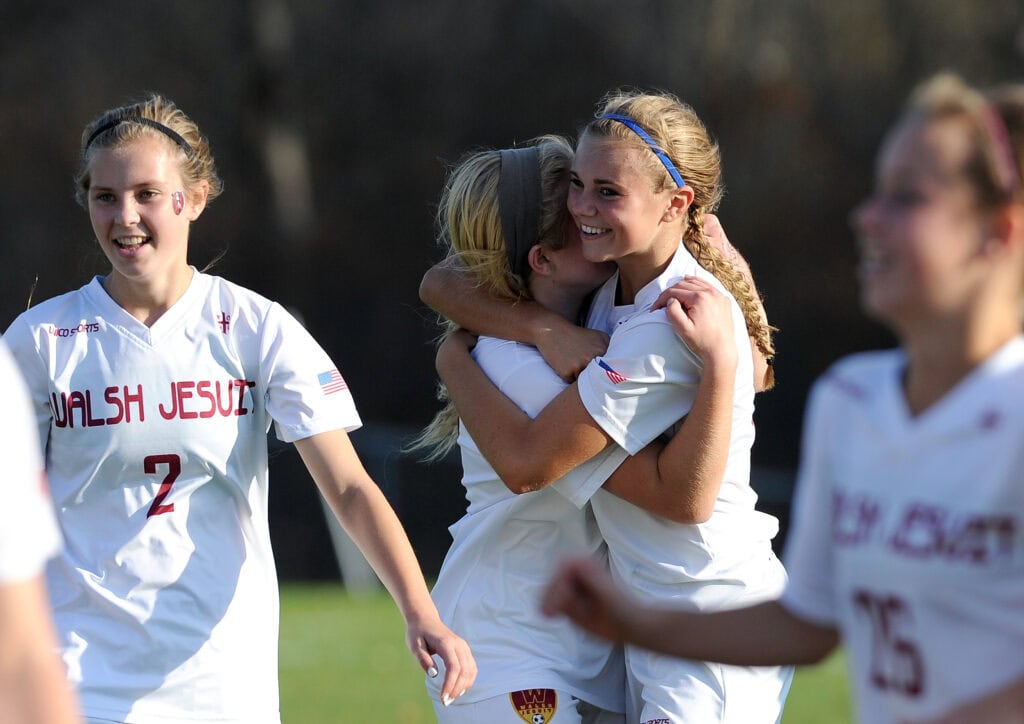PCA June Partner of the Month: JED Foundation

06.28.24
Our partner of the month for June is The Jed Foundation (JED), a nonprofit that protects emotional health and prevents suicide for our nation’s teens and young adults, giving them the skills and support they need to thrive today…and tomorrow.
PCA and JED have worked together to create three resources – Mental Health Tips For High School Athletes, 12 Tips For Talking To Your Teen Athlete About Their Mental Health, and The Coaches’ Guide To Supporting High School Athlete Mental Health
We spoke with Jessica Orenstein, MPH, Director of Programmatic Partnerships at JED.
Can you talk about the work that JED does with schools around the country?
Our approach is to meet youth where they are, and schools are the main ecosystem where they spend a great deal of time in this environment. Because of this, we work with colleges, universities, high schools, and school districts across the country to equip these communities with evidence-based resources to create a culture of care where students can find ways to be supported and feel seen.
Two of our major programs that most people know us for are JED Campus and JED High School.

JED High School provides high schools expert support, evidence-based best practices, and data-driven guidance to protect student mental health and prevent suicide. Through our JED High School program, we partner with schools to assess their communities’ needs, develop a customized strategic plan to build on existing strengths, and implement tools, strategies, and techniques that lead to measurable improvements in student mental health and a more connected community.
JED Campus is a comprehensive four-year program to improve emotional well-being and mental health for students on campuses. JED’s expert-led team thoroughly assesses campus community needs to develop a strategic plan. Leveraging your existing strengths, our team helps implement evidence-based, data-driven best practices to create a connected campus community.
Through these programs, we work with the entire system, from caregivers and parents all the way down to youth themselves. We create healthy connections to school environments so that youth can feel protected and that those around them know how to reach out to them if they see any signs of distress. We’re in more than 1,200 schools, districts, and campuses across the country that include HBCUs, Hispanic Serving Institutions, Asian American and Native American Pacific Islander Institutions, and more, comprising over 6.5 million students from Pre-K to college.
Why is it important that organizations like JED and PCA work in schools?
I believe caregivers and parents are the most important figures to support their children emotionally and mentally. However, kids spend a significant amount of their time in school systems and in other programs adjacent to school such as school sports. Given that youth spend so much time in these spaces it is critical for educators, coaches, and any other adults working with kids, to know how to recognize signs of distress, how to reach out to kids, and if youth are struggling, how to get them help.
Why do we need to focus on the intersection of mental wellness and youth sports?
We know that sports have many benefits. They teach life skills, conflict resolution, how to be a team player, and overall, how to have fun. That’s actually a really big skill, teaching kids how to just let go and enjoy being in the present moment. At the same time, we also know that sports can take up a lot of time in a young person’s life and can sometimes add stress. For example, if you are a student-athlete, perhaps a team captain involved in other extracurriculars, not to mention schoolwork and you have a social life, there is a lot of pressure to perform and to perform well consistently. And, then on top of that, to win. It is so important for us, as adults, to be mindful of this. I think a lot of us are well past the time of remembering what it felt like to be a teenager or an adolescent, and how stressful it can be. And then we’re looking at a generation that is growing up around social media and it’s just much different. Being mindful of how sports and everything in between are interconnected with their mental wellness is crucial.

Why is the mental wellness of our youth athletes something that parents and coaches alike should take an active role in supporting?
I think coaches see a unique side of their players that parents, caregivers, teachers, friends, and others may not be privy to. They may notice that an athlete isn’t performing as well as they usually do, see that they are distracted, not getting along with their teammates, or that practice didn’t go well. Given what a coach is exposed to with the youth they work with it’s really critical that we equip coaches with skills to notice signs of distress. In addition, I think coaches are well-positioned to be the people that quite often youth are turning to first, so we need to make sure they have the skills to work with kids — especially when it comes to mental wellness and know when and how to make a referral to professional help.
Could you pick one action that you want coaches, parents, and athletes to take?
I’m not dismissing the fact that it could be very difficult to do this, but I would just advise coaches and caregivers to listen to their gut. When we think that something is wrong, our natural instinct may be to mind our own business, but it is so important that we reach out to youth and ask questions. They may say nothing is wrong, but letting them know you’re here for them, and will follow up with them goes a really long way. I’ve run into so many youth and youth athletes that feel like no one cares. The simple act of asking, “Hey, are you okay?” and following up if they don’t want to respond at that moment, goes so far.

We at PCA we talk a lot about creating environments that support young people and creating space for youth to have conversations, even if it is awkward. What are your thoughts?
Absolutely. I will double down time and time again about how life-altering it can be to just reach out, and if nothing is wrong, then nothing is wrong. For example, my sister who is no longer with us was an amazing cheerleader. I don’t think that any of us in the family knew how much stress she felt. I was also a cheerleader, and older than her, so she wanted to be as good as, if not better, than me. She struggled a lot with her mental health, and I truly believe that she had people around her that could have helped, and that wanted to help. I believe that there is so much power in just asking “are you okay?” Three simple words – “Are you okay? That’s all it takes. Yes, it can be awkward, but most of the time youth want someone to reach out and someone to see them — to actually see that they are there and that someone cares.
PCA is launching a new workshop on positive coaching and mental wellness. What are your thoughts on this?
I think it’s amazing. I would encourage all types of organizations that have adults working in different spaces with youth to have workshops on mental wellness. I wish more communities were doing this and understood the impact that it can have to equip supportive adults with a few more skills in order to position them to better support the mental and emotional well-being of youth.
To bring our newest workshop, Developing Competitors and Mental Wellness Through Positive Coaching to your high school, click here.